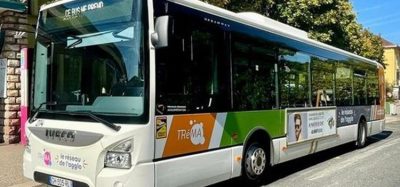European SOCRATES project finalises cooperation framework
- Like
- Digg
- Del
- Tumblr
- VKontakte
- Buffer
- Love This
- Odnoklassniki
- Meneame
- Blogger
- Amazon
- Yahoo Mail
- Gmail
- AOL
- Newsvine
- HackerNews
- Evernote
- MySpace
- Mail.ru
- Viadeo
- Line
- Comments
- Yummly
- SMS
- Viber
- Telegram
- Subscribe
- Skype
- Facebook Messenger
- Kakao
- LiveJournal
- Yammer
- Edgar
- Fintel
- Mix
- Instapaper
- Copy Link
Posted: 10 July 2018 | Intelligent Transport | No comments yet
Public and private partners of the SOCRATES2.0 project have developed a framework for public–private cooperation regarding traffic information to provide new and better services for road users.


The SOCRATES2.0 Cooperation Framework is a valuable document for all relevant stakeholders in the traffic management and information services arena, such as international service providers, car manufacturers, ITS companies and road authorities. This framework will form the basis for a European deployment of interactive traffic management.
SOCRATES2.0 is a pan-European project where public and private partners are realising smart traffic information and traffic management services in the regions of Amsterdam, Munich, Antwerp and Copenhagen. The pilots will start in June 2019 and, in preparation for them, a framework on their cooperation has been delivered. The framework consists of the following:
- The Socrates2.0 vision on public–private cooperation for traffic information services. The partners wanted to establish something new, rather than improving an existing concept of cooperation. To do so, they recognised that a paradigm shift should be made from ‘managing and influencing traffic’ to ‘supporting people on their travel from A to B’.
- Elaborated use cases for services for road users: smart routing, actual speed and lane advice and local information and hazardous warnings. These include a list of steps defining the interactions between actors and systems to achieve the goals.
- Options regarding stakeholder cooperation, in order to facilitate the services by defining common goals for different levels of cooperation and the concept of an intermediary, based on the services and cooperation models. An intermediary could have a role in data exchange coordination, aggregation, fusion, quality control and common situational picture.
The framework describes several typical options for the intermediary role, to be selected and elaborated during the course of the following project activities.
Commenting on the value of their achievement, Irina Koller-Matschke (BMW), project leader for the realisation of the framework, said: “This framework presents a first selection of options for cooperation and implementation of services. For example, a Cooperation Model matrix and different Intermediary types are presented. It is expected that for the different SOCRATES2.0 pilots there will be no ‘one size fits all’ Cooperation Model and variations to the Intermediary types are possible. The upcoming SOCRATES2.0 pilots will experiment with different Cooperation Models and Intermediary types per use case, in order to experience more and learn the effects of different options. The results will be used to update the framework.”
Related topics
Infrastructure & Urban Planning, Traffic Management
Related cities
Europe
Related organisations
The BMW Group
Related people
Irina Koller-Matschke (BMW)








